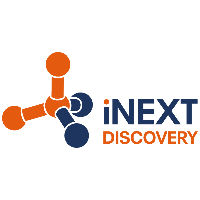23-Jan-2020
To enable researchers from European institutes to extend innovative structural biology research towards translational science, the EU has granted 10 million euros to iNEXT-Discovery, through the Horizon 2020 program. The iNEXT-Discovery consortium aims to facilitate the development of new drugs, advanced vaccines, novel biomaterials, engineered enzymes for food production and efficient biofuels by enabling leading European facilities to offer advanced technological instrumentation and expertise to European scientists, which may be unavailable in their home countries.
Advancing technologies beyond the state-of-the-art
iNEXT-Discovery consortium partners will collaborate in joint research activities to develop new and better ways to perform structural biology experiments. iNEXT-Discovery will consolidate the strong role of structural biology in drug development by offering access to fragment-based lead discovery methods, developing tools to increase the throughput for electron microscopy and serial X-ray crystallography, and pushing nuclear magnetic resonance (NMR) spectroscopy to better describe time scales, molecular states and dynamics. Prof. Dr. Anastassis Perrakis, the iNEXT-Discovery coordinator from the Division of Biochemistry at the NKI and Oncode Institute, confirmed that integration of technologies and methods will be further enabled through the extensive and inclusive iNEXT-Discovery training program.
Instruct-ERIC and iNEXT-Discovery
Instruct-ERIC is the European Research Infrastructure Consortium in Structural Biology, supported by national funding from its Member countries. With more than 9000 registered users, Instruct is the landmark provider of specialist structural biology research infrastructure in Europe. Instruct-ERIC will play a key role in the iNEXT-Discovery project, providing the access and service management system (ARIA) that will handle all applications, including the peer review process and scheduling of activities. The use of ARIA is an important integrative step that will ensure ease of use for researchers by keeping processes standardised and well supported.
How to access iNEXT-Discovery facilities
Access to all facilities will be available through an open, peer review system based on scientific excellence and the potential of each project for enabling translational research. iNEXT-Discovery will be open for applications from academic and industry researchers from 1 February 2020.
